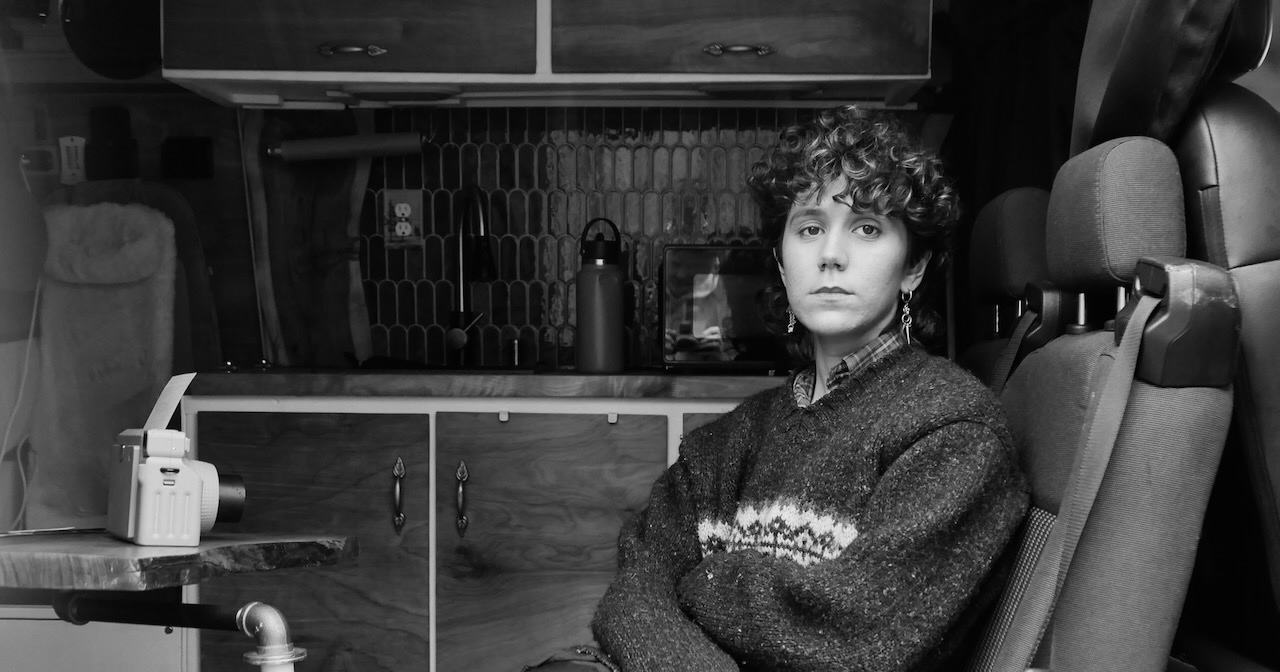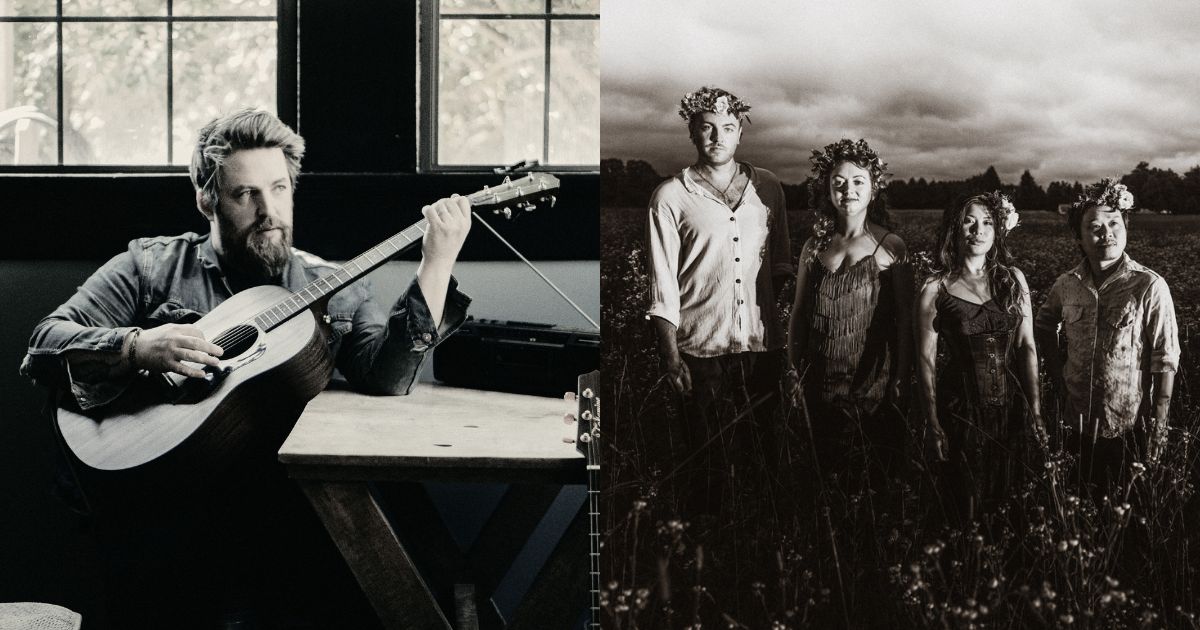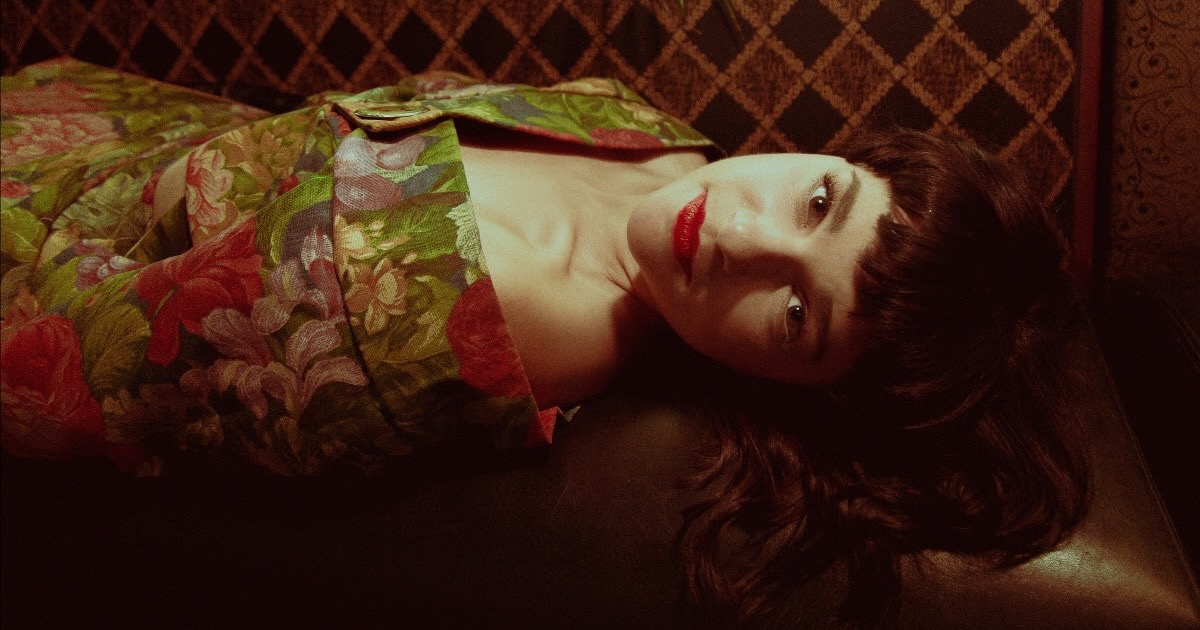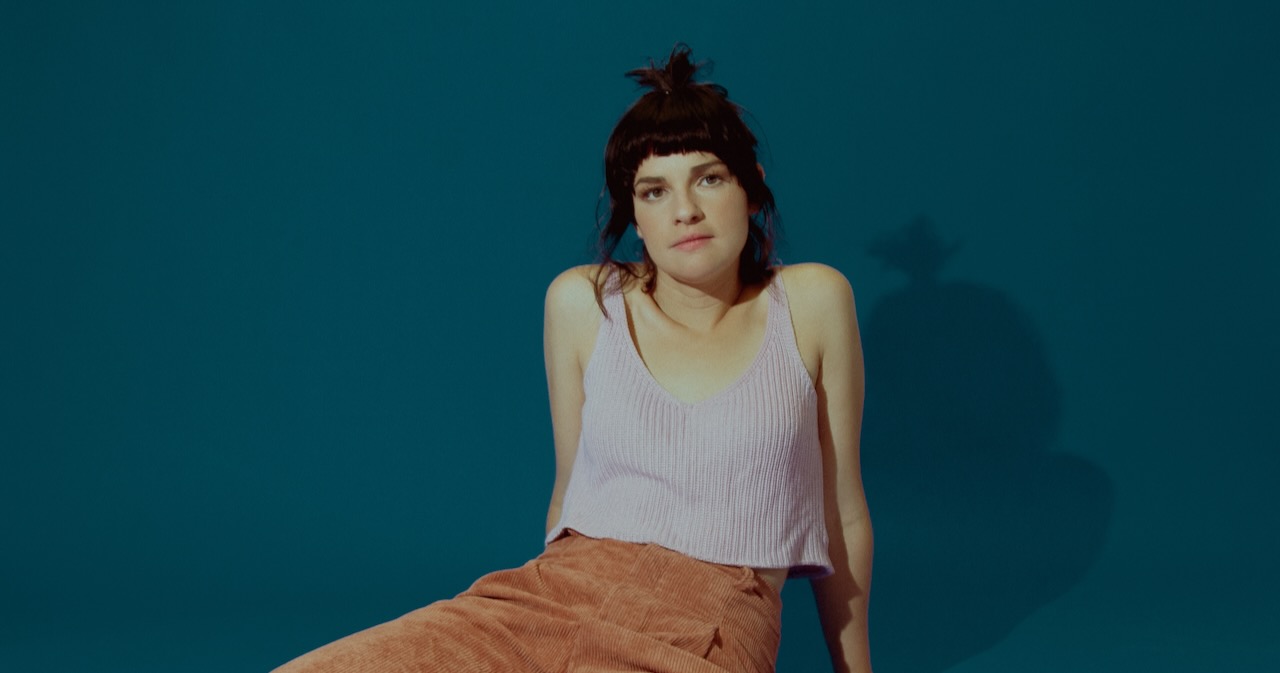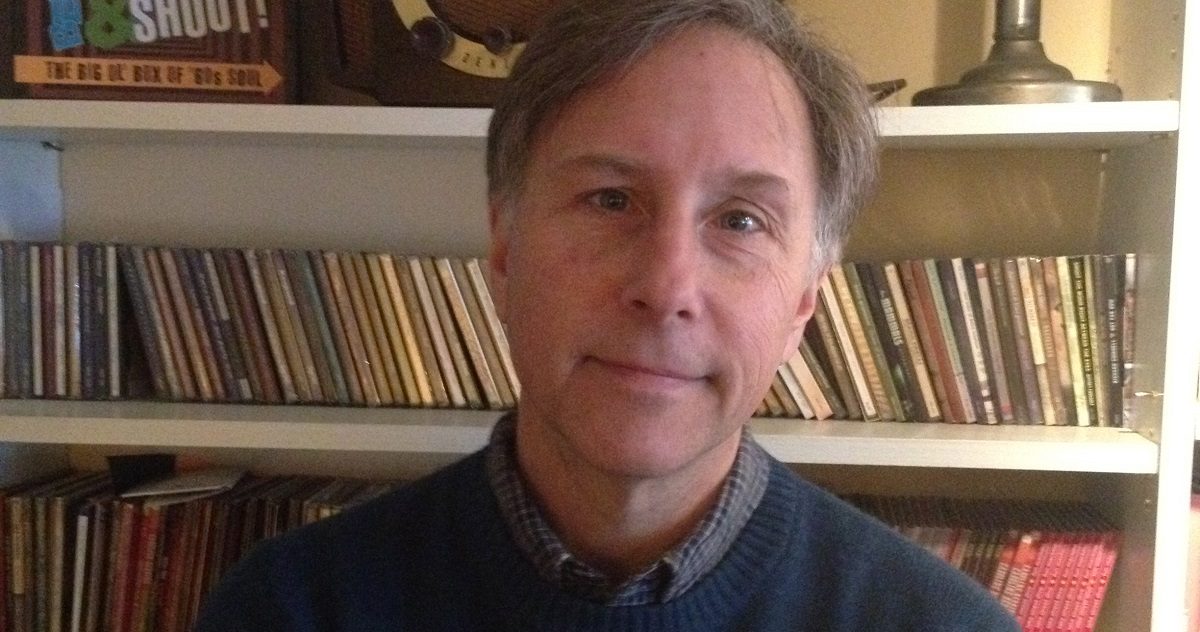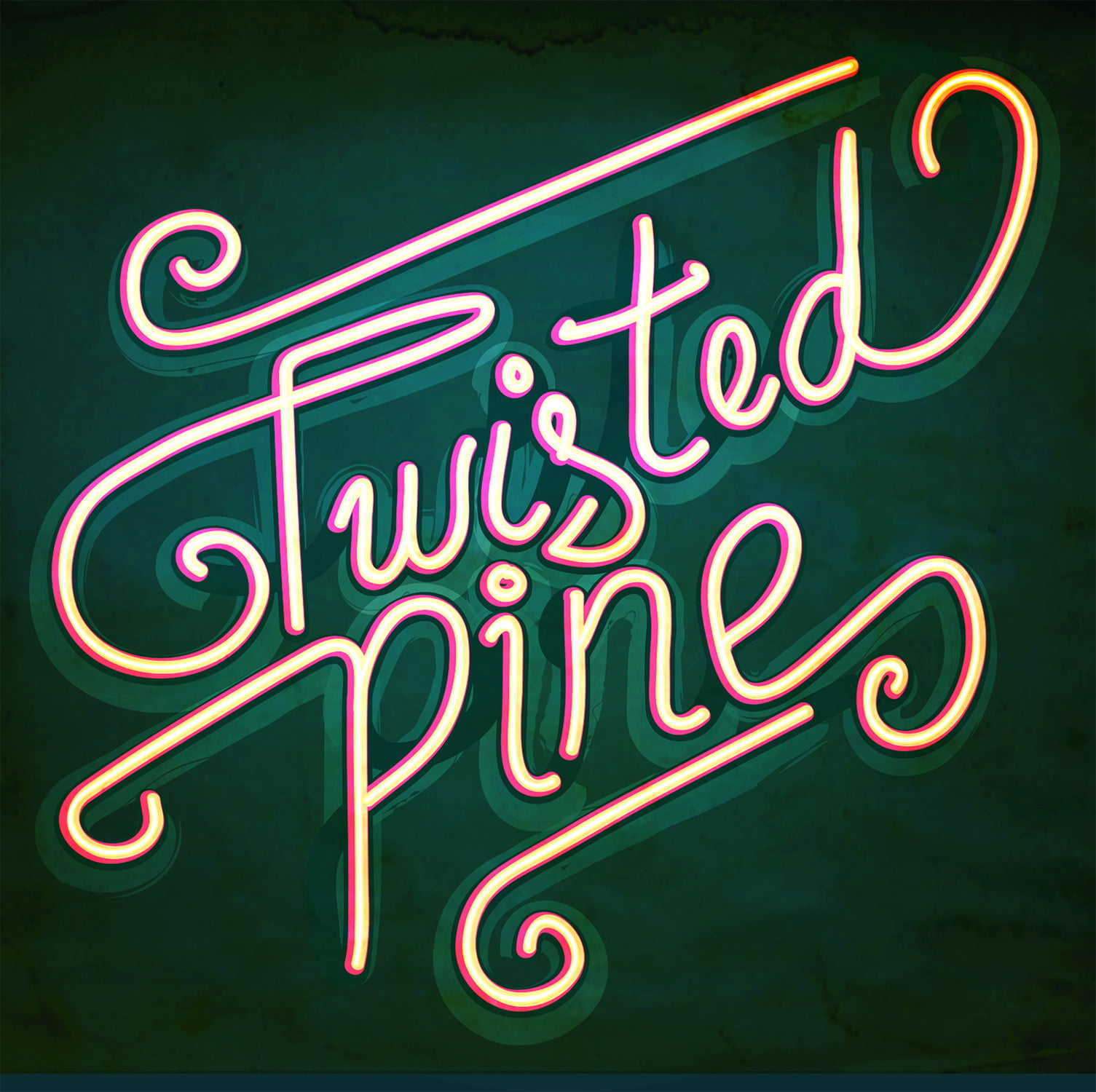“If the world is my oyster I’ve been poking at it with a plastic fork,” sings Olive Klug on “Taking Punches from the Breeze,” the first track off their second album, Lost Dog, which released April 25. Klug writes with a mesmerizing combination of levity and intensity about a slightly off-kilter world. Through closeups on minute, funny, and revealing moments in life, they illustrate how schisms can be beautiful, too, if you see them right.
Though often joyful and whimsical, Lost Dog isn’t always rosy. On it, Klug works through immense life and perspective shifts. Their takes on breakups – “The butterflies have all got broken wings” (“Cold War”) – and depression – “When my friend hangs up / and my mind turns gray” (“Opposite Action”) – are refreshing not for their angst but for their realism. But nowhere is their combination of playful, revealing storytelling more evident than on “Train of Thought,” their love letter to their neurodivergent brain.
There’s a train in the sky in the middle of my mind and it’s flying off a one-way track
And they try to button up my suit and tie in an attempt to hold me back
But I’m this strange old conductor wearing pearls and a backwards baseball cap…
Klug grew up in Oregon and studied psychology in college, intending to work towards a master’s degree and career in social work. Not long after graduation, the COVID-19 pandemic hit and they lost their job. Like so many others, Klug ended up at home, on TikTok. There, music took off fast, and their song “Raining in June” scored them an audience. From there, life hit warp speed – a record deal, a move, a music career, a new relationship – and then it fell apart.
Now older and recalibrating, they’re releasing their second album, Lost Dog (their Signature Sounds debut), about aging with a neurodivergent brain, leaning into their differences, and coming to terms with not having everything figured out.
Your first album, Don’t You Dare Make Me Jaded, came out in 2023 and now we’re talking about your new album, Lost Dog. You’ve lived a lot of life between recording the two albums and you’re clearly writing from a different place this time around. What’s changed for you between those two projects?
Olive Klug: I was 23, 24 when I really started to pursue music as a career. I was not particularly young, but I was kind of naive in the music industry world. I blew up pretty quickly after giving it a go and then moved to LA and signed a record deal. When I look back, I had a lot of hubris, I was very self involved. I was living in LA. It was very exciting. I thought “I’ve made it.” I was making all my money off of music. [But] I was dropped from that record label directly after the release of that album, Don’t You Dare Make Me Jaded, which I think now is kind of like funny and ironic and is hilarious.
That’s funny, “Damn, I said don’t.”
So I was dropped from that label and I also went through a breakup. I had these two years of riding this crazy high and then everything came tumbling down at the same moment. I realized that that whole era of my life was a little bit gilded; that relationship wasn’t right for me, that record label wasn’t right for me. But I looked like I had it together on the outside.
All of that made me dig pretty deep into what I wanted out of my life. It was a moment of soul searching and a moment of having to believe in myself, understand who I was, and motivate myself to keep going in music, because there was nobody around me believing in me anymore.
The past two years have been this wild journey of figuring out what I want, figuring out who I am, and maturing and leaving that hubris behind – and [leaving] that life behind. Since that happened, I moved to Nashville, Tennessee, I recorded a bunch of songs, I wrote a bunch of songs. I bought a van. I now live in my van, but I still don’t really have things totally figured out. I’m still lost at times. I think that’s the reality for a lot of people my age.
I’m in my late 20s now and I think that this album is really about the moment that I woke up. I was 27 and things were less figured out than they were when I was 24. That’s where the Lost Dog title comes from, feeling like I am getting older yet I am still feeling like a lost dog, wandering around the country.
There is so much pressure in this world to have it figured out or to be one specific way, and it feels like you’re pushing back on that and saying you don’t have to do that if it’s not right for you.
I’m not really trying to make a statement. My first album, I tried to tie all of my songs up in this neat little bow to be like, “Here is the message that I want to send with this song.” This next album is much more unfiltered. It’s just what came out of me. This is my experience. I’m not trying to reassure anybody with these songs.
You’ve said that this album is about aging as a neurodivergent free spirit. Particularly talking about “Train of Thought,” where you’re leaning into the chaos you feel inside your brain sometimes, instead of trying to hide it. What about that experience felt like what you needed to write about on this album?
I spent my adolescence trying hard to fit in. I had my little secret moments at home. But at school and in my regular life, I got good grades. I dressed up in a way that I thought would be rewarded [at] school. I still was very [much] conforming to my gender, and I tried really hard to be “normal.” I was scared of what would happen to me socially if I did not try to fit in, even though there was this part of me that really wanted to be different.
It wasn’t until my adulthood that I felt the freedom to experiment more with my identity and experiment more with rejecting those norms. I think that’s totally the opposite of what a lot of people experience. A lot of people, when they’re a teenager, they rebel and they dress really crazy and they try to be as weird and challenge the norms as much as possible. I didn’t start doing that until maybe even slightly after college. Since then, it’s been a deep spiral down into allowing myself the freedom to really be myself.
I didn’t understand that I was neurodivergent. I didn’t understand that my brain worked a little differently than other people. Now I’m like, “Well, what do I have to lose? I’m just going to be totally myself.” Having this community of people who are my listeners and fans who really like that about me, and who really celebrate that about me, has been really healing. I think that a lot of artists and writers are neurodivergent in some way and the superpower of it is that’s what allows us to write the way that we do. That’s what [“Train of Thought”] is about, allowing myself to stop trying to put myself in a box and let the chaos of my mind roam totally free.
I’m curious about “Taking Punches from the Breeze,” which is you letting yourself wander in a different way. There are these great lines in there like, “…If the world’s my oyster I’ve been poking at it with a plastic fork.” I don’t think anybody has ever presented that concept before in that way.
I wrote that one living in an apartment in LA by myself. And I love living alone. It’s like the best for my creative flow. But I was really sad. It was in the aftermath of that breakup and being dropped from the record label where I wrote these songs. “Taking Punches From the Breeze” was one of the first ones I wrote. That and “Cold War” were the beginning of this Lost Dog era, so to speak. I got really high one night, to be so honest with you. I was in my apartment and I had just gone on– you know when you have your first date after a breakup? I was on this first date after a breakup. I feel like I am pretty good at asking other people questions and I was asking this person all these questions. Then they would turn around and ask me those questions and I’d be like, “God, I don’t know what I’m doing right now.”
When I’m doing shows, I’m like, “Oh, I’m a Gemini. That’s why this album is the way it is.” I think it’s true, it’s about holding a lot of dualities. A constant disorientation is what I’ve really felt for the past two years. But there’s a lot of fun and joy and possibility in that constant disorientation. It can be hard at the same time.
The other side of the duality, or another part of the duality, is “Opposite Action,” where you’re really pretty down in the middle of the album. Tell me about writing that song.
That was also in that time. I think it was late summer, I was in my apartment in LA feeling weird. I was a psychology major, and I learned about DBT [Dialectical Behavioral Therapy]. That song borrows from a DBT concept called opposite action. I remember having questions about it when I learned about it. But it’s basically the concept that you do the opposite of what your instincts are telling you to do: If you are feeling particularly depressed, you’re supposed to take a deep breath and try to do the opposite. So if you wake up and you want to lay in bed all day and do nothing, you’re supposed to force yourself to go out and be social, go to the park, go to the beach.
I was like, “I’m gonna go to the beach, even if it’s by myself. I’m gonna try to plant things in my backyard.” It was all these things that I was trying to do to make myself feel better, but then feeling really frustrated, because I was taking good care of myself and I still felt bad.
How the song really started was, as a touring musician, so many of the things that people tell you to do to establish some sort of stability and happiness are just impossible to do. Growing plants is something that I would love to be able to do. I can’t do that, because I’m not at my house most of the time. I came back from a trip or a show or something and I had tried to grow jalapeños and tomatoes in my little back patio area. They had died.
That to me is one of the things that really sticks out about your music. You have this way of dialing in on these minute observations. Is that how your brain works all the time? Is that how you’re seeing the world?
I don’t know, maybe. I don’t know how people see the world differently or not. But my writing does feel sort of matter of fact to me oftentimes. So maybe that is how I see the world.
It’s matter of fact, but it’s really joyful.
I think a lot of Lost Dog is coping with those decisions I can’t really take back. If I had gone down that traditional path, if I had gone to grad school, become a therapist, I would have health insurance right now, I would have job security right now. There would be a lot of things that I would have right now that I lack in my life. It is scary to be even a semi-successful musician. I have no certainty. It’s really, really hard to feel any sense of stability or certainty. And to not have any health insurance and to not have any benefits, and all of that stuff, it can be really scary. I wish that small working artists had that. It makes me feel like I’m never going to be able to really have a family, if I go keep going at this rate, I am never going to be able to go to the dentist.
That’s the thing that I really wish more people understood. You’re looking at this artist on stage every night and you relate to their music, they’re still on the road maybe 200 days a year. They don’t have that personal life stability. They don’t have that health insurance often. Even if you think they’re well known, the margins are so crummy and what it takes is so intense.
But if I had not taken this risk, I would always wonder what would have happened. I’m really glad I took the risk. It’s such an incredible payoff. One thing that I can always feel when I’m on stage every night is I have the most fulfilling career ever. That is something that I will never question.
People are like, “I want to have a job that has meaning and that feels aligned with what I’m good at and who I am.” Every night I go on stage, I’m getting paid to do the thing that I feel like I am meant to be doing and that is really worth it. Maybe one day that will include some stability.
And just like that, we’re back to dualities.
Yes, exactly.
Photo Credit: Alex Steed
